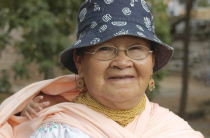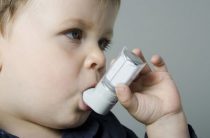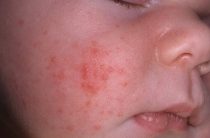Most parents complain about allergic reactions in the body of their children. It is worth noting that a very large number of babies suffer from food allergies. In adults, as a rule, it is rarely fashionable to meet allergic reactions to potatoes. This disease affects children in the first 3 years of their lives.
Allergic reactions are manifested by potato starch or the tuberin protein present in it. Like any allergy, an advanced potato allergy in a child can cause anaphylactic shock. In order to avoid such a turn of events, you should definitely consult a doctor at the first manifestations of it.
Symptoms
As a rule, the symptoms of a potato allergy are quite similar to those of any other food allergy. We can note the most "famous" symptoms of potato allergy:
- Rash (urticaria)
- Dyspnea
- Vomit
- Mucosal edema
Allergies can manifest themselves in the form of a runny nose, sneezing or coughing. In this case, it is difficult for parents to understand that there is a manifestation of an allergy in its purest form. Also, a sick child may experience redness of the eyes, tongue, throat. Parents may also notice general malaise, dizziness, and drowsiness. Very often children suffer from diarrhea or constipation. You can observe all these symptoms in your child after eating potatoes. And such a reaction is connected with the fact that the intestinal walls have not yet strengthened in the baby, and it is difficult for him to deal with harmful proteins. Some formula milks contain starch, which can cause food allergies.
Causes
The main causes of potato allergy in a child are:
- Feeding introduction. Potato complementary foods should be introduced with extreme caution, small portions and constantly monitoring the reaction of the child's body.
- Presence of nitrates in potatoes
- Eating old potatoes, which cause red blood cells to stick together
- You don't have to eat potatoes. It will be enough for a child to just be there while peeling raw potatoes.
Treatment
Once you have suspected a potato allergy in your child, do not put off a visit to an allergist. The first step is to eliminate potatoes from your diet. Follow a hypoallergenic diet.
Many doctors have recently recommended a type of therapy called immunotherapy. Its essence lies in the introduction into the patient's body of gradually increasing doses of the allergen. This helps the body get used to it and it stops reacting to the pest.
To eliminate allergic reactions to potatoes, antihistamines should be taken. Diazolin, Suprastin and Claritin have proven themselves well. But the treatment regimen with these substances should be prescribed only by a doctor. You should not resort to self-treatment of this disease, as this can only aggravate the whole situation and cause a number of other diseases.
Prevention
Often children simply outgrow the allergy. But if allergy symptoms appear even at an older age, then potatoes should be excluded from consumption.
I would also like to note the cross-reactions that an allergy to potatoes can cause. Such products include:
|
|
It would be a crime to remove all these vegetables from your diet. The body needs them. And so you can easily replace them with others that are no less useful. Insufficient consumption of vegetables can be compensated by a sufficient amount of fruits. Potatoes can be replaced with mashed bananas or sweet potatoes.
Before cooking, it is also recommended to soak the potatoes for several hours. Thus, harmful starch comes out of it.
We advise you to keep a food diary in which you need to make all the foods that your child ate, and prescribe the body's reactions to them. Thus, you will greatly facilitate the work of doctors. Many mothers advise adding zucchini to soups instead of potatoes. It is zucchini that is a low-calorie product and very rich in fiber. And fiber, as you know, is involved in the process of removing toxins from the body.
If your child is in kindergarten, you should notify management about your problem. A dietary menu should be drawn up for the child, excluding potatoes and foods containing starch. If you are feeding meat purees, carefully study the composition, as they often contain starch. Try to make your own puree for children. After all, no effort is required to grind apples and pears in a blender.
Instead of potatoes, it would be useful and reasonable to include mashed broccoli and cauliflower, celery soup in the child's diet. The use of white beans and Jerusalem artichoke is also allowed. For the preparation of bakery products, use only buckwheat or rye flour.















